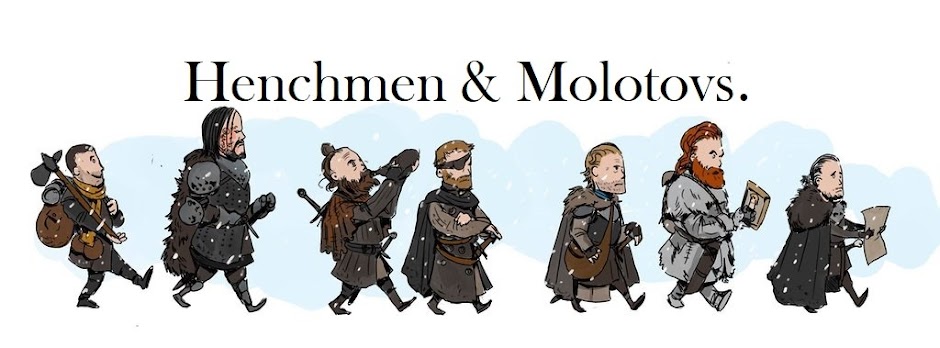Yes you read that right. Don’t invest in your character.
What does that mean? It simply means that you can enjoy playing just as much - or even more - if you don’t consider your own character to be the center of your game experience. Here, I’ll explain why and then I’ll give you some suggestions how.
OSR, or folkstyle d&d, is about problem-solving, not narrative. The primary problem is something like: “there’s treasure underground and monsters and traps protect it. How are we gonna get it out?” This leads to numerous other fun problems that we call “the campaign.” In the campaign, there is narrative - but it comes from solving problems, not from acting in the story the Ref has scripted for you ahead of time.
This implies that your own brain is your primary tool for success. And that your character - sometimes I’ll call it your figure - is how your brain manipulates the game world. Again, your character is your tool, much like a chess man is a tool for solving the problems your opponent presents to you in a chess match.
Now, nobody invests too much emotion in a pawn or a knight in chess. And I’m not suggesting you should be so cavalier about your character in d&d. But there is a happy medium there where you feel comfortable risking the figure’s death without breaking down in tears if he meets his fitting end.
There’s another force at work against investing in your figure, and that’s time. The old games kept strict time, sometimes on a 1 day = 1 day basis. Whether your Ref plays like that or time is less iron-bound to real time, characters each need to spend time training to gain their next level, to heal injuries, to make magic items or supervise their castle’s construction, or just to learn spells.
You see, healing magic only works while on adventures. God doesn’t grant you miracles for any old reason. You have to heal up in the normal fashion once you head back to town.
Similarly, in folkstyle D, it takes time to learn spells: a full night’s rest and then 15 minutes of preparation for each spell level. Easy at your first few levels, but to reload a master wizard, it will take a day or so of study. A spell scroll takes a week to write; a potion, a whole day. A permanent magic item can take weeks.
Characters also have lives away from the dungeon. Much of a character’s might is derived from land, alliances and favors owed. Gaining these takes time in town or at Court. A boy character may take a mistress or wife; that wife may bear him a child. This may suggest new adventures or alliances. A girl character might have a baby. This will keep her out of the dungeon for 12 months or more.
At my table, and yours may vary, adventurers are only free to delve for about 18 weeks a year. They are required to serve in their Lord’s wars, they must do labor, politics or religious service, and the weather is just too frightful to expedite for many winter months.
All these time squeezes mean that “Your Character” might not be ready to delve when the time comes for it.
So what do we do when “Your Character” is tied up? Run a different figure of course.
In the old days, men would run three, four, five different figures. Not all at once (but sometimes two at a time.) If the wizard died? Oh well, he’s dead, let’s get on with the fighting-man.
I’m toying with the idea of a chargen minigame that pops out seven characters all at once. Not sure what I will call the system, but I will share it when I have it set. Doing seven at once ensures your backup guys are ready to go when needed.


No comments:
Post a Comment
Stay focused.